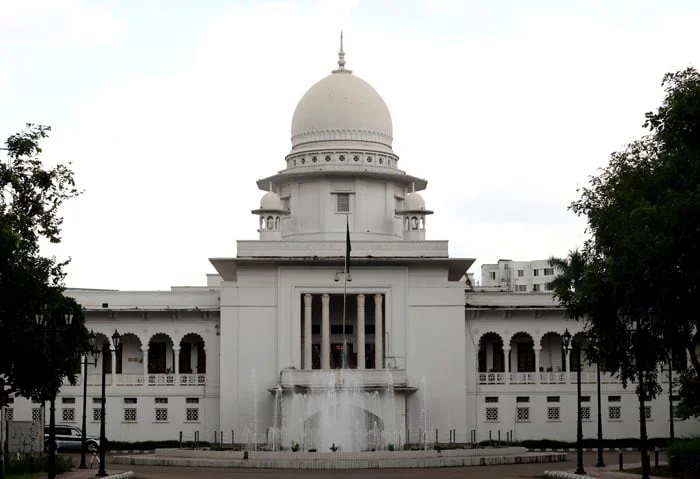News Flash
News Flash

DHAKA, June 5, 2025 (BSS) - The Appellate Division of the Supreme Court (SC) in its judgement, which reinstated the Supreme Judicial Council to remove apex court judges for incapacity or violating the code of conduct, has said the spirit of 16th Amendment case, was to put independence of judges at stake.
"What was the essence of the Sixteenth Amendment case? It was an attempt by a despotic and fascist government to wrest the power of removal of Judges from the Supreme Judicial Council and vest them in the hands of the Parliament, thereby putting the independence of Judges at stake," the apex court observed.
The observation was made in the full text of the Appellate Division judgment that was pronounced on October 20, 2024. The apex court released the 50-page full-text today.
"Disposed of with observation," said the judgment passed by the Appellate Division bench headed by Chief Justice Syed Refaat Ahmed on October 20, while disposing of a plea to review the apex court judgment that had declared the 16th constitutional amendment illegal
"In other words, if a Judge, in the course of discharging his function, would incur the wrath or disfavour of the government, he/she could be removed from office by the stroke of a pen by the Members of the Parliament. Can such a situation be allowed or accepted in a democratic society? The answer, in my considered view, as has also been stated by my learned brothers in their respective judgments, is an emphatic 'No'," said the observation made by Justice Zubayer Rahman Chowdhury in the judgment.
The apex court in its judgment also said, a judge, while deciding a case, should refrain from entering into any controversial political issue which demoralises him, putting him under serious criticism.
"A judge should, thus, remain abstinent in expressing his political view which may have an anarchic impact on the image of the judiciary and thereby affects the independence of the judiciary," it added.
Lauding the order as a milestone for the real independence of the judiciary, Attorney General Md Asaduzzaman had said the judiciary, through this order, reached a point to work independently. This verdict will surely make its place in history.
"A historic responsibility has been assigned to the Supreme Judicial Council, adding, "I hope they will be able to work correctly, keeping their backbone straight. The review plea was filed much earlier on 94 grounds. We have examined all 94 grounds and concluded that there is not a single ground good enough to review the case. We told the court that we would not place the grounds before it," he had said after the pronouncement of the judgment.
Senior advocate Manjil Mushid moved the writ petition before the court, while Barrister Ruhul Quddus Kazal also took part in the hearing. Attorney General Md Asaduzzaman stood for the state.
A seven-member Appellate Division full bench on July 3, 2017, pronounced its judgment, upholding a High Court verdict that declared illegal the 16th amendment to the constitution, which had empowered parliament to remove judges for incapacity or misconduct. The state later filed the plea, seeking a review of the apex court judgment.
A three-member High Court bench led by Justice Moyeenul Islam Chowdhury had delivered the verdict by majority on May 5, 2016.